Linda Fairstein Accuses Ava Duvernay Of Lying In ‘When They See Us,’ Duvernay Seemingly Responds
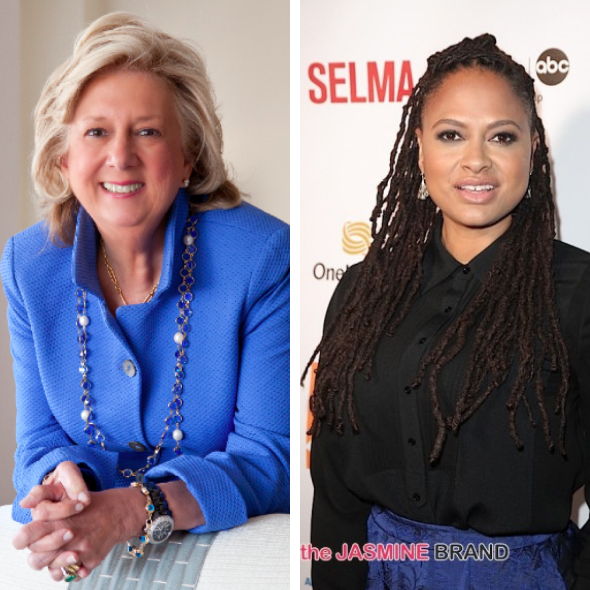
Linda Fairstein, Ava Duvernay
Linda Fairstein Calls Out Ava Duvernay For Lying In ‘When They See Us,’ Duvernay Possibly Responds ‘Expected And Typical’
Director Ava Duvernay seems to be unbothered by Linda Fairstein’s Op-Ed that tells her side of what happened with the Central Park 5 case, and calling out Duvernay in the process.
It looks like Duvernay responded to Fairstein’s essay via Twitter.
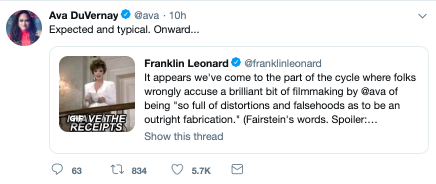
After being stripped of her position on non-profit boards, deleting her social media and receiving backlash, the investigator in the infamous Central Park 5 case, Fairstein, has broken her silence. She did so through an Op-Ed in the Wall Street Journal Monday.
She first laid out the basics of the case. A Manhattan jogger, Trisha Meili, was raped and brutally beaten while running in Central Park on April 19, 1989. She added that eight others suffered attacks as more than 30 teenagers rioted in the park. Five Black and Latino boys, Antron McCray, Kevin Richardson, Yusef Salaam, Raymond Santana and Korey Wise, were later wrongfully convicted of the rape.
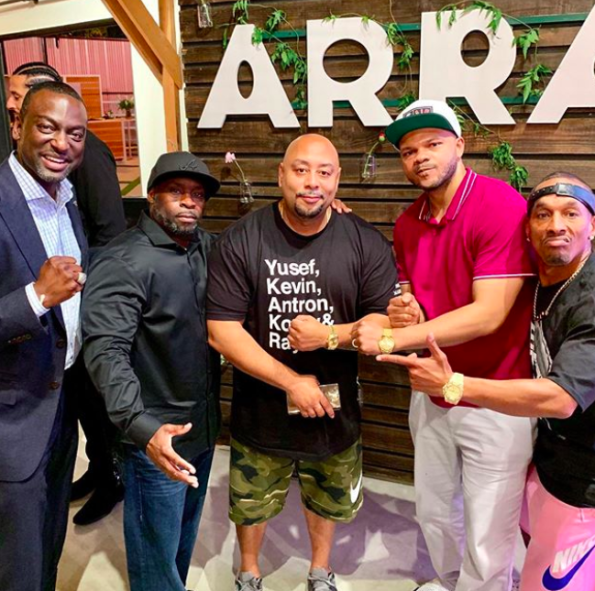
Central Park 5
They served time as teenagers before they were exonerated in 2002 when the real rapist, Matias Reyes, confessed to doing it all himself.
Fairstein, who headed the investigation as the leader of the Manhattan Sex Crimes Unit, said,
“Reporters and filmmakers have explored this story countless times from numerous perspectives, almost always focusing on five attackers and one female jogger. But each has missed the larger picture of that terrible night: a riot in the dark that resulted in the apprehension of more than 15 teenagers who set upon multiple victims. That a sociopath named Matias Reyes confessed in 2002 to the rape of Ms. Meili, and that the district attorney consequently vacated the charges against the five after they had served their sentences, has led some of these reporters and filmmakers to assume the prosecution had no basis on which to charge the five suspects in 1989. So it is with filmmaker Ava DuVernay in the Netflix miniseries “When They See Us,” a series so full of distortions and falsehoods as to be an outright fabrication.”
“It shouldn’t have been hard for Ms. DuVernay to discover the truth. The facts of the original case are documented in a 117-page decision by New York State Supreme Court Justice Thomas Galligan, in sworn testimony given in two trials and affirmed by two appellate courts, and in sworn depositions of more than 95 witnesses—including the five themselves. Instead she has written an utterly false narrative involving an evil mastermind (me) and the falsely accused (the five).”
She addressed how the film shows that the five boys were kept without food, interviewed for hours on end (some without their parents), and physically assaulted until they agreed to say they were the rapists, or at least had some part in it.
“If that had been true, surely they would have brought those issues up and prevailed in pretrial hearings on the voluntariness of their statements, as well as in their lawsuit against the city. They didn’t, because it never happened.
In the first episode, the film portrays me at the precinct station house before dawn on April 20, the day after the attacks, unethically engineering the police investigation and making racist remarks. In reality, I didn’t arrive until 8 p.m., 22 hours after the police investigation began, did not run the investigation, and never made any of the comments the screenwriter attributes to me.”
She then spoke on the portion of the film where Salaam and Wise were taken into custody while they were walking down the street. While Salaam was a potential suspect, Wise only went to the police station with his friend to protect him. In the end, Wise’s story was considered the most heartbreaking as he was sent to prison instead of juvenile detention like the other four, since he was 16. Wise wasn’t released until they were exonerated in 2002.
“Ms. DuVernay depicts suspects Yusef Salaam and Korey Wise being arrested on the street. In fact, two detectives went to the door of the Salaam apartment on the night of the 20th because both had been named by other rioters as attackers in multiple assaults.”
“The film claims that when Mr. Salaam’s mother arrived and told police her son was only 15—meaning they could not question him without a parent in the room—I tried to stop her, demanding to see a birth certificate. The truth is that Mr. Salaam himself claimed to be 16 and even had a forged bus pass to “prove” it. When I heard his mother say he was 15, I immediately halted his questioning. This is all supported by sworn testimony.”
She also mentioned a Black woman who testified in the first trial and the 2002 re-investigation. That woman said Wise told her brother that he was involved with the assault.
“Ms. DuVernay would have you believe the only evidence against the suspects was their allegedly forced confessions. That is not true. There is, for example, the African-American woman who testified at the trial—and again during the 2002 re-investigation—that when Korey Wise called her brother, he told her that he had held the jogger down and felt her breasts while others attacked her. There were blood stains and dirt on clothing of some of the five. And then there are the statements of more than a dozen of the other kids who participated in the park rampage. Although none of the others admitted joining in the rape of Trisha Meili, they admitted attacking male victims and a couple on a tandem bike, and each of them named some or all of the five as joining them.”
“Nor does the film note that Mr. Salaam took the stand at his trial, represented by a lawyer chosen and paid for by his mother, and testified that he had gone into the park carrying a 14-inch metal pipe—the same type of weapon that was used to bludgeon both a male schoolteacher and Ms. Meili. Mr. Reyes’s confession changed none of this. He admitted being the man whose DNA had been left in the jogger’s body and on her clothing, but the two juries that heard those facts knew the main assailant in the rape had not been caught. The five were charged as accomplices, as persons “acting in concert” with each other and with the then-unknown man who raped the jogger, not as those who actually performed the act. In their original confessions—later recanted—they admitted to grabbing her breasts and legs, and two of them admitted to climbing on top of her and simulating intercourse. Semen was found on the inside of their clothing, corroborating those confessions.”
She ended with saying that Reyes’ confession to the rape should have exonerated the Central Park 5 from that assault, but not the others that happened that night.
“Mr. Reyes’s confession, DNA match and claim that he acted alone required that the rape charges against the five be vacated. I agreed with that decision, and still do. But the other charges, for crimes against other victims, should not have been vacated. Nothing Mr. Reyes said exonerated these five of those attacks. And there was certainly more than enough evidence to support those convictions of first-degree assault, robbery, riot and other charges.”
“It is a wonderful thing that these five men have taken themselves to responsible positions and community respect. That Ms. DuVernay ignored so much of the truth about the gang of 30 and about the suffering of their victims—and that her film includes so many falsehoods—is nonetheless an outrage.”
“Ms. DuVernay does not define me, and her film does not speak the truth.”
Your thoughts?


 Previous Article
Previous Article Next Article
Next Article Wendy Williams “Knew A Lot Of Things For Years” About Estranged Husband, Waited To Divorce Him Because Of Her Son: He Was At Home & It Wasn’t Fair To Him
Wendy Williams “Knew A Lot Of Things For Years” About Estranged Husband, Waited To Divorce Him Because Of Her Son: He Was At Home & It Wasn’t Fair To Him  Jaleel White To Host Syndicated Game Show ‘The Flip Side’
Jaleel White To Host Syndicated Game Show ‘The Flip Side’  ‘Grey’s Anatomy’ Crew Member Sues LAPD For Racial Profiling After Wrongfully Pulling Him Over At Gunpoint In Front Of Cast & Crew
‘Grey’s Anatomy’ Crew Member Sues LAPD For Racial Profiling After Wrongfully Pulling Him Over At Gunpoint In Front Of Cast & Crew  Ellen DeGeneres On Getting ‘Kicked Out Of’ Hollywood After Toxic Workplace Claims: ‘Had I Ended My Show Saying Go F*ck Yourself People Would’ve Been Pleasantly Surprised’
Ellen DeGeneres On Getting ‘Kicked Out Of’ Hollywood After Toxic Workplace Claims: ‘Had I Ended My Show Saying Go F*ck Yourself People Would’ve Been Pleasantly Surprised’ 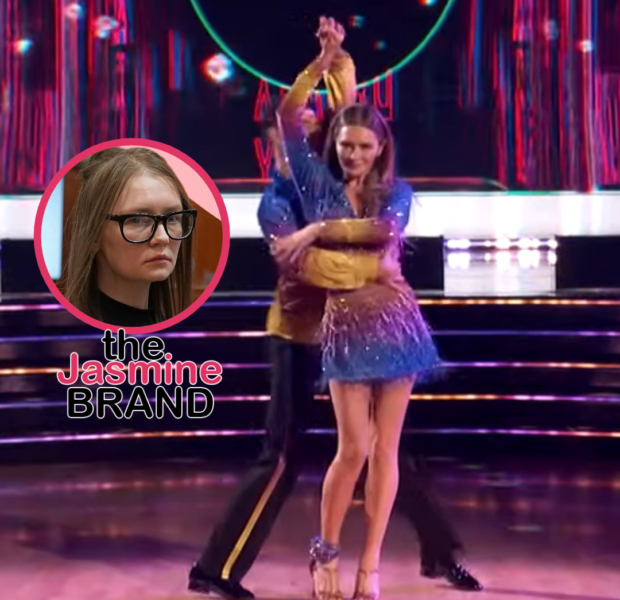 ‘DWTS’ Draws Mixed Opinions As Public Reacts To Convicted Felon Anna Delvey Performing w/ An Ankle Monitor
‘DWTS’ Draws Mixed Opinions As Public Reacts To Convicted Felon Anna Delvey Performing w/ An Ankle Monitor ![Tyler Perry Pretends To Lose Connection When Asked About Prince Harry & Meghan Markle Living In His L.A. Mansion [WATCH]](https://thejasminebrand.com/wp-content/uploads/2020/05/Screen-Shot-2020-05-07-at-6.21.34-PM-620x600.png) Tyler Perry Pretends To Lose Connection When Asked About Prince Harry & Meghan Markle Living In His L.A. Mansion [WATCH]
Tyler Perry Pretends To Lose Connection When Asked About Prince Harry & Meghan Markle Living In His L.A. Mansion [WATCH] 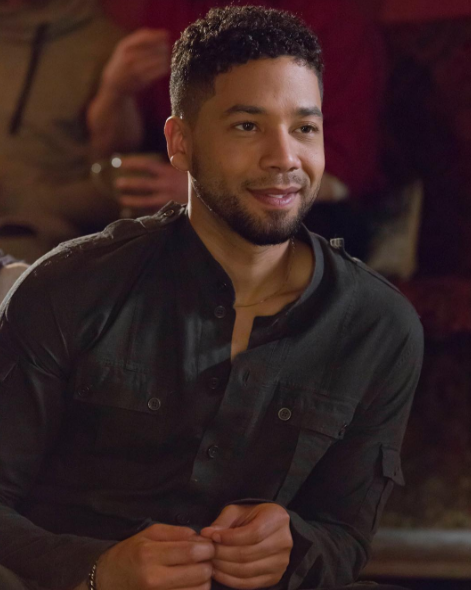 Jussie Smollett – Petition Launched To Bring Him Back For Empire’s Final Season + EP Calls His Exit ‘A Challenge’
Jussie Smollett – Petition Launched To Bring Him Back For Empire’s Final Season + EP Calls His Exit ‘A Challenge’ 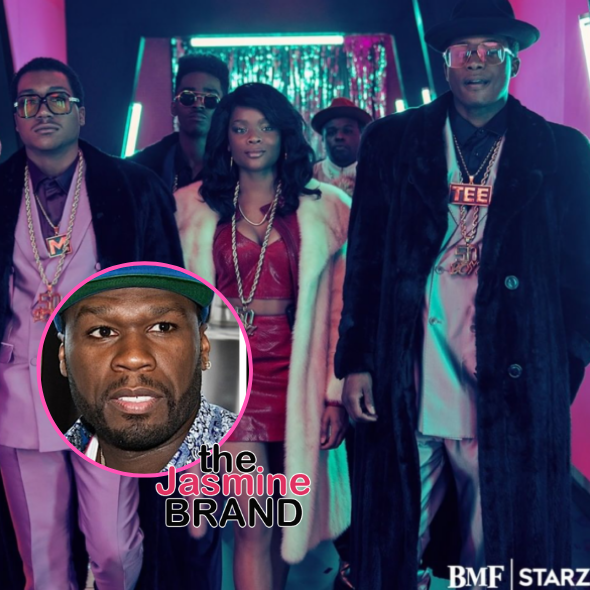 50 Cent’s ‘BMF’ Series Gets Early Season 2 Renewal On Starz
50 Cent’s ‘BMF’ Series Gets Early Season 2 Renewal On Starz